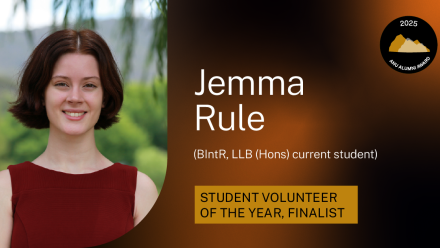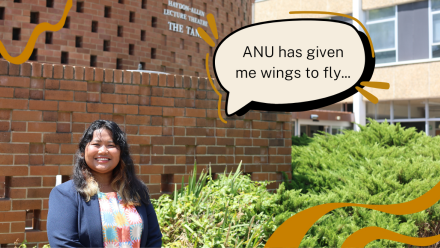ChatGPT and other forms of generative AI
Message from the Pro Vice-Chancellor (Education and Digital) Professor Maryanne Dever
Things have moved quickly since ChatGPT arrived on the scene earlier this year and it's a good moment for an update on how ANU is responding to generative AI. The university acknowledges that generative AI is here to stay and we see lots of possibilities for it in education and in other aspects of university operations in the future. It will be a part of our students' futures and so we are keen to design learning that supports our students' ability to operate in an AI-supported world.
Different Colleges and different course convenors will have different approaches to ChatGPT and generative AI. Some academic staff have been using these tools for a while in their courses and may use it in assessments. Other staff will be clear that the use of ChatGPT is not permitted in their courses. Given the diversity of approaches, ANU has no plans to ban the use of ChatGPT.
You may have heard that Turnitin recently introduced an AI writing detection tool. ANU already uses Turnitin text matching software. As part of our current Turnitin license we have access to a preview version of the new AI function to the end of this year. As this tool was introduced by the vendor in the middle of a teaching semester, we have not had an opportunity to evaluate it. For this reason, a decision has been made that ANU will not be using the tool to pursue academic integrity matters at this time. While we have access the tool we have an opportunity to review it, to talk to others across the Australian higher education sector, and to consider whether and in what ways this tool might feature in our future approaches to academic integrity.
In the meantime, academic integrity remains of the utmost important at ANU. That is why the ANU Centre for Teaching and Learning, in collaboration with the ANU School of Computing, has provided guidance to ANU academics on the implications of ChatGPT for academic integrity, noting that some of the risks it poses are not especially new.
At ANU we have robust measures in place to prevent academic misconduct and catch potential incidents. These measures include sophisticated assessment design and verifiable assessments such as nested assessments, assessments based on laboratory activities, practicums and fieldwork, timed assessments, oral presentations and invigilated examinations. We continue to invest in these measures and systems.
All students at ANU are given very clear information about academic integrity, why it matters and how they can ensure they uphold this integrity in all their academic work. The University has an academic integrity rule all students are expected to abide by. We are updating our guidance to reflect the presence of AI, as well as relevant policies and procedures around academic integrity.
As part of the new ANU Learning and Teaching Strategy, we are undertaking a review of assessment across the University and this will provide an opportunity to consider AI and assessment more generally. Academics and teachers are well placed to determine whether or not they need to change aspects of current assessment tasks - based on the style of task and how vulnerable it is to the types of input ChatGPT provides.
At the same time, the application of AI tools in some professions is growing and students need to be able to use them effectively. We know that AI is going to disrupt work practices across different industries and we want to ensure our students understand how to operate effectively with AI. The ANU plans to work with staff so they can help students develop skills around the appropriate and responsible use of AI tools as part of an ongoing conversation about academic integrity, ethics and professional practice. We have significantly expanded the ANU Careers Service recently and are working on a new ANU Employability Framework and together they will ensure that our students graduate with the skills and knowledge that will see them succeed.
Professor Maryanne Dever
Pro Vice-Chancellor (Education and Digital)


